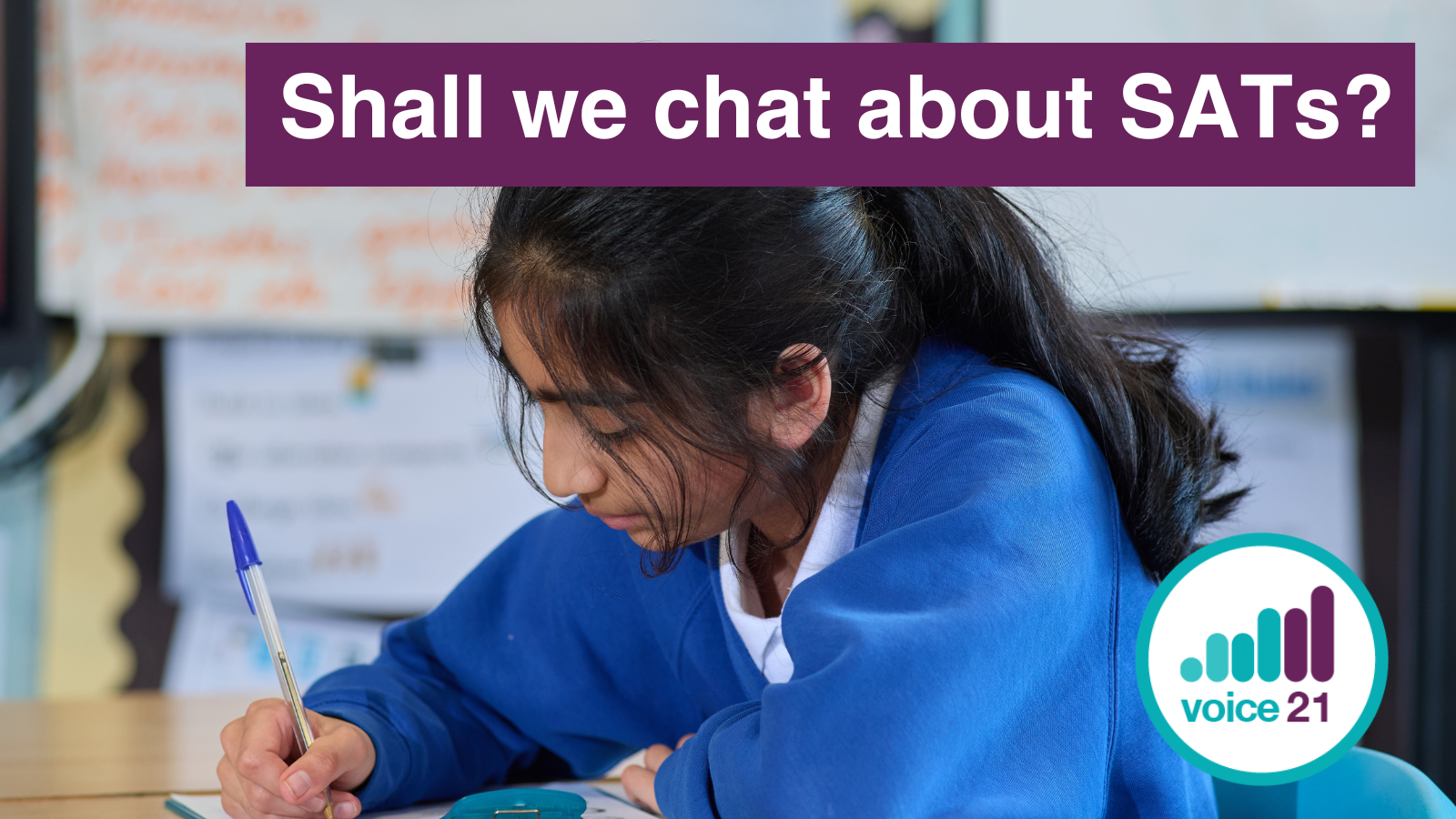Shall we still chat about SATs? - By Amanda Moorghen

SATs week could conjure visions of silent children hunched over test papers, and might not seem like a time of year where there is much to say about oracy. Furthermore, it may not always conjure the image of classroom practice driven by reflective professionals, who use their judgment and expertise, to support children to become adept communicators. But, there’s a lot to say about oracy and SATs.
It would be a fallacy to present ‘good SATs results’ and ‘a high-quality oracy education’ as an either/or. Instead, the research evidence shows us that high-quality classroom talk drives improved results for 11 year olds taking their SATs.
Researchers at Cambridge University studied 72 Year 6 classrooms across England. They recorded and transcribed the classroom talk that occurred, so that they could explore what kinds of classroom talk most strongly predicted performance on SATs. In other words, does it matter whether students listen to each other’s ideas (and not just their teacher)? Does it matter if students are invited to challenge or build on each other’s ideas (rather than only offering short answers with no follow-up, or only the teacher offering any response)?
What they found was that the quality of teacher-student dialogue does matter. Students are more likely to perform well on their SATs if they are studying in classrooms where these elements are present:
At Voice 21, we see students experience the benefits of a high-quality oracy education every day. We also see the hard work that teachers and school leaders put in to make that happen! Creating truly dialogic space in your classroom, and teaching all students the skills they need to access that space, isn’t something you can do overnight – certainly not in time for this year’s SATs results to shoot up!
The end of the school year is a prime opportunity to experiment with approaches to oracy in your school. For Year 6 students especially, this focus will support them with the oracy skills they need to thrive across transition to secondary school – a time where linguistic demands take a big jump.
For all students, this latter part of the summer term is traditionally a time full of the joyful, creative experiences that characterise many people’s memories of primary school, and which offer opportunities for students to find their voice – whether literally, in the development of their oracy skills, or figuratively, in the exercise of agency over their educational experience.
If you’ve got something planned in this term where students are, or could be, extending their oracy skills, now might be the time to reflect on how you can ensure this is the best chance it can be for every student to try something new and to perform at their best. Perhaps you have a school play, student showcase or other performances planned? The Oracy Benchmarks offer a framework you could use to reflect on the way these events are structured, so that you maximise the opportunity to develop students’ oracy:
© 2024 Voice 21. Voice 21 is a registered charity in England and Wales. Charity number 1152672 | Company no. 08165798